Attending the Timkat celebrations in Gondar, recently named a UNESCO World Heritage, was one of our fixed goals for this trip. They celebrate the baptism of Jesus. It was a rollercoaster of emotions for us. The main ceremony is held on the tenth day of the Ethiopian month of Ṭərr, which in 2020 falls on January 20. The ceremonies start the day before and end in the morning. In Gondar they are held at Fasilides’ bath where young man jump into the water at the end of the ceremony. We arrived at the ceremony at 4 am to get a seat with a good view. The ceremony was close to come to an end when the unthinkable happened and one of the wooden stands directly opposite of us collapsed with several hundred people on it. We learned late in the evening that more than ten people died and over a hundred were injured. I wrote a whole post about it and deleted it because I am still at a loss for words. I can still see it swaying to one side and then falling to the other. We, and everyone witnessing it, were completely shocked. The people close to it immediately took action and started pulling people and posed out of the pile. We left the site after we we were sure no panic was going to spread. The ceremony was resumed after all the people were recovered. While it is an important religious ceremony for the Ethiopians, we were there to see a spectacle which we couldn’t do after this. The celebrations in the city on this day and the next seemed to proceed unaffected as well. We think that not all people necessarily knew about it and that the Ethiopians may have a different attitude towards death. We on the other hand were shaken and needed some time to recover. Now we are left with the wish nothing similar ever happens again.
The ceremony at Fasilides’ bath during the night consisted of singing and chanting lead by a priest whose voice was transmitted over loudspeaker so that everyone could hear. Often the Ethiopians would join in. The whole area was decorated with the Ethiopian colors and the people all wore white traditional dresses. Many were holding long thin candles. More and more priests assembled around the pool during the night. The ceremony would end with men jumping into the water and water being sprayed over the crowed. This last part we missed. We went back late that afternoon and again two day later and people were swimming in the water. I do t think the water is actively drained but mostly evaporated so the bath becomes an open air swimming pool for youths after school.
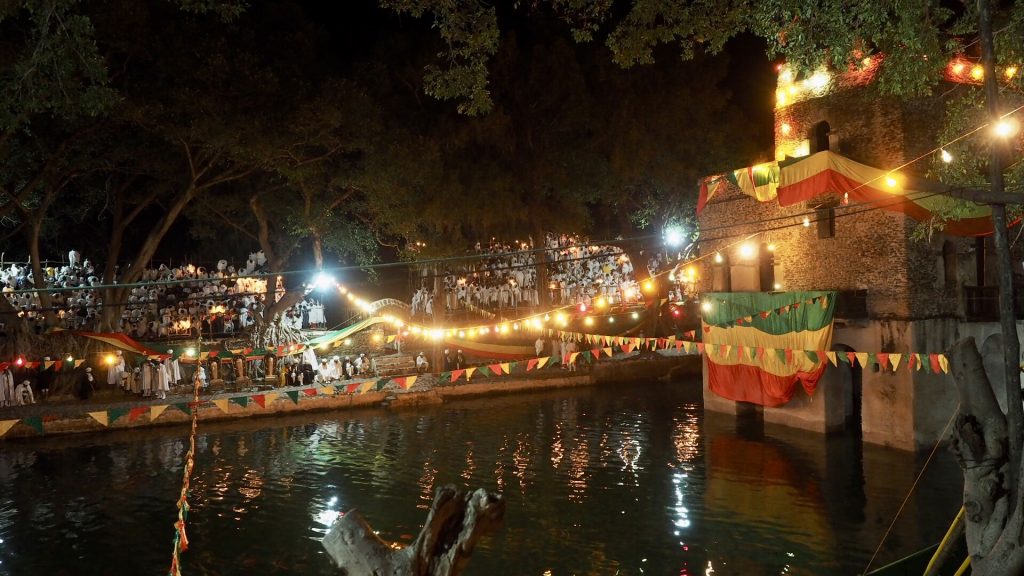
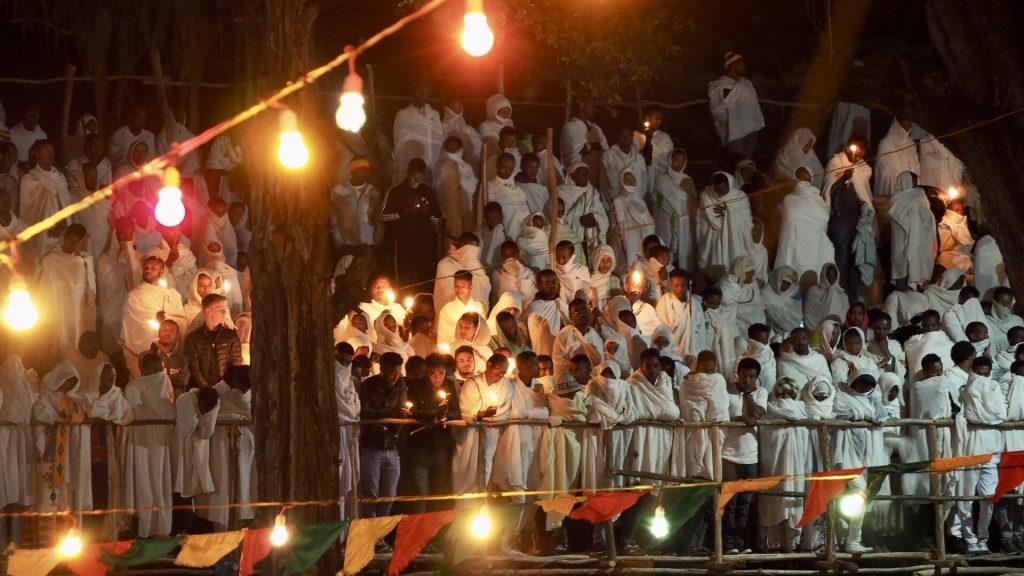
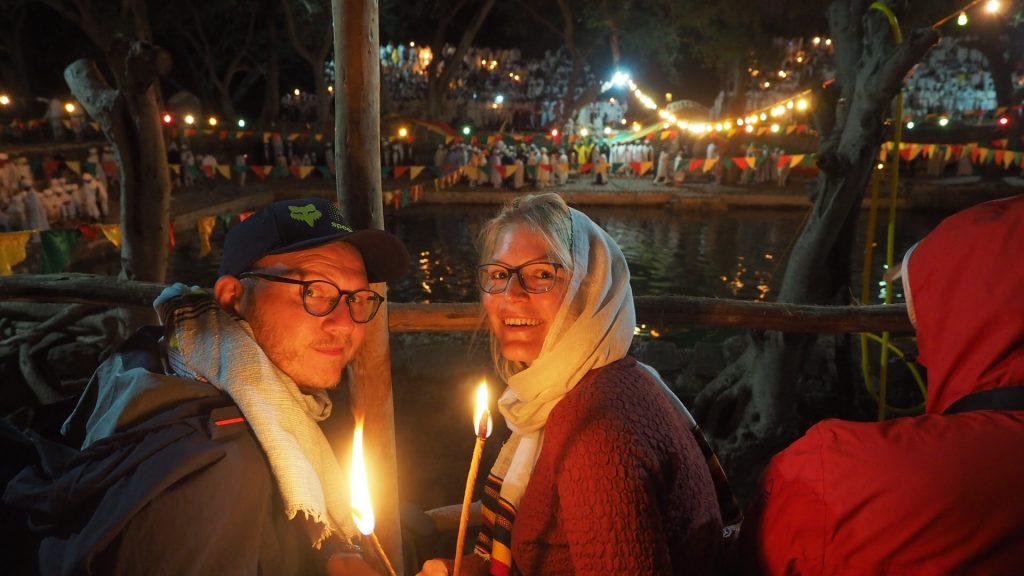
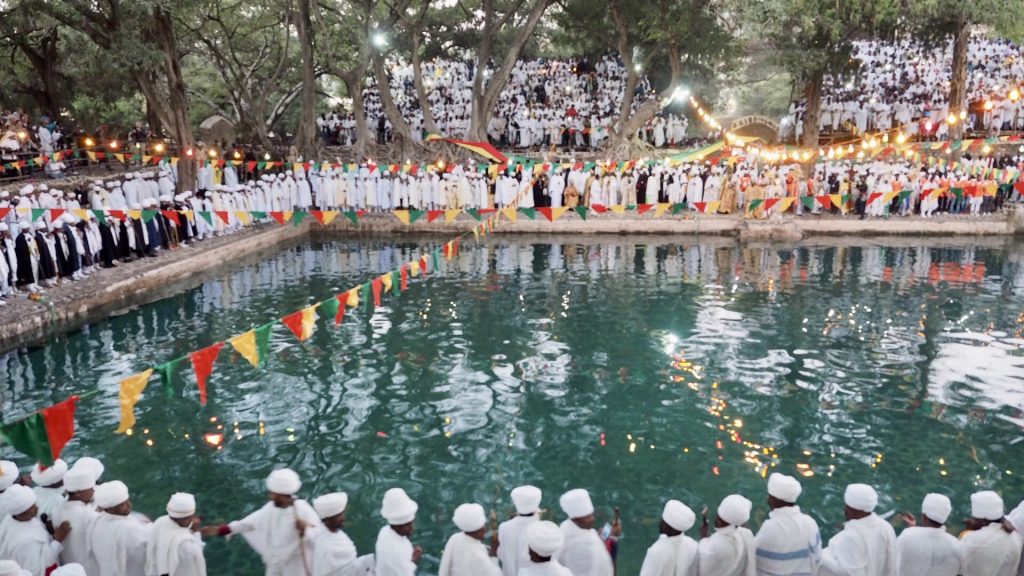
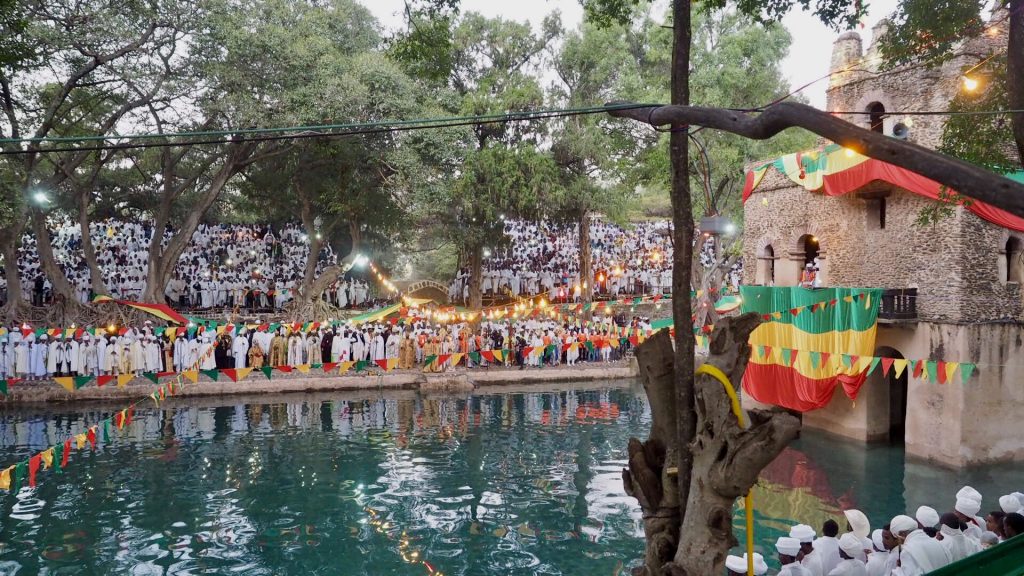
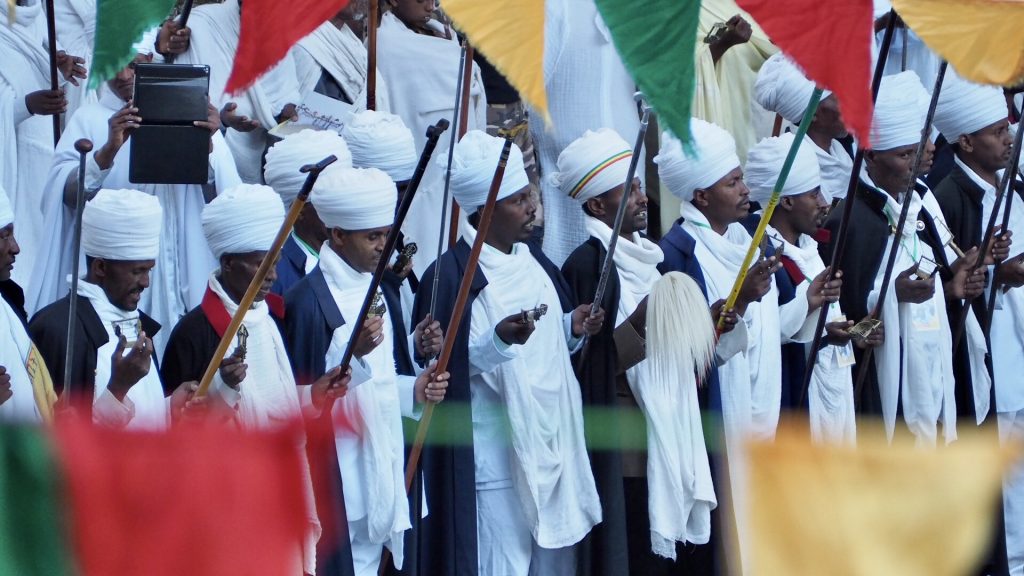
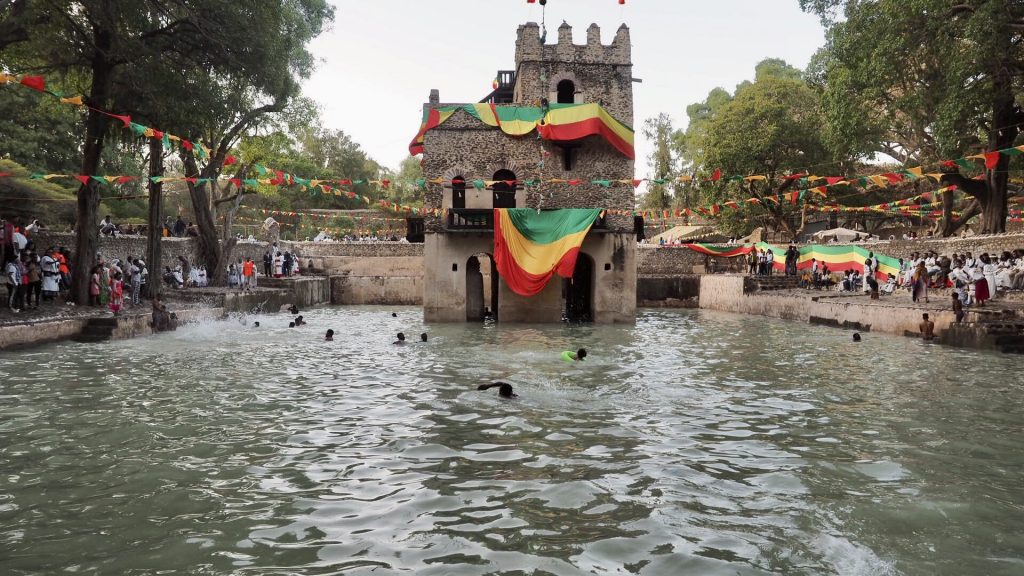
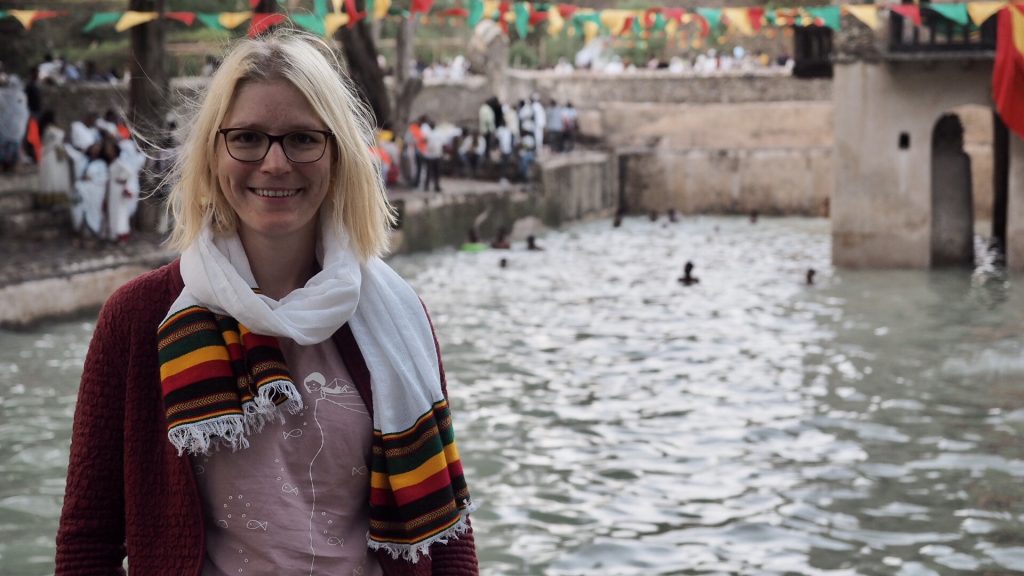
During the day of Timkat and the day after the whole city celebrates. Everyone is dressed up, most in white. Everybody is dancing, singing and running around. Unlike anything we have seen this is not dominated by maximizing the profit, there are no food, drink or games booths. Yes, there is alcohol, but we did not see anyone severely drunk. We even got the cheapest beer of our trip here: 8 Birr for a large draft beer! There were people selling Ethiopian-colored shirts and scarfs or fried food but it wasn’t that many. And it wasn’t even close to the streets lined with booths that I know from home. Everybody was just so happy, friendly and having fun. Lots of people wanted to take pictures with us (which we agreed to, of cause), there was always someone to help us to get a drink when the waiters were ignoring us in the restaurants and bars.
On the day after Timakt there is a large procession from Fasilides‘ bath through the town to return the Tabots to the church, carried by priests on their head. The priests are actually on carpet which is rolled up behind them, carries ahead and rolled out again. The procession is lead by three large floats and dancing groups of people. The official procession concludes with groups from the different churches dressed in white singing and dancing. They are then followed by everyone else. The reverse procession happens on the day before Timkat, but we had still been in the Siemen Mountains then.
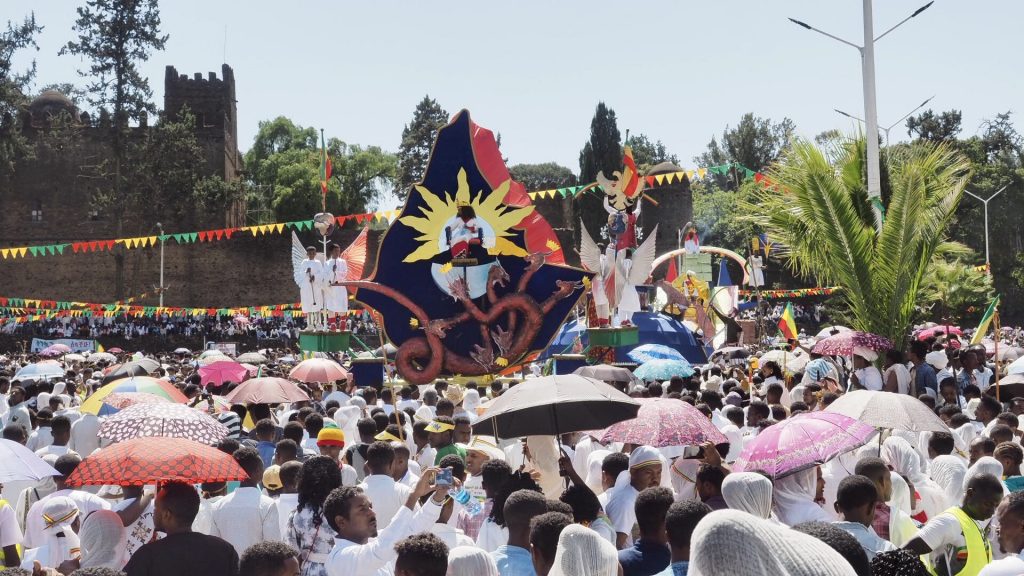
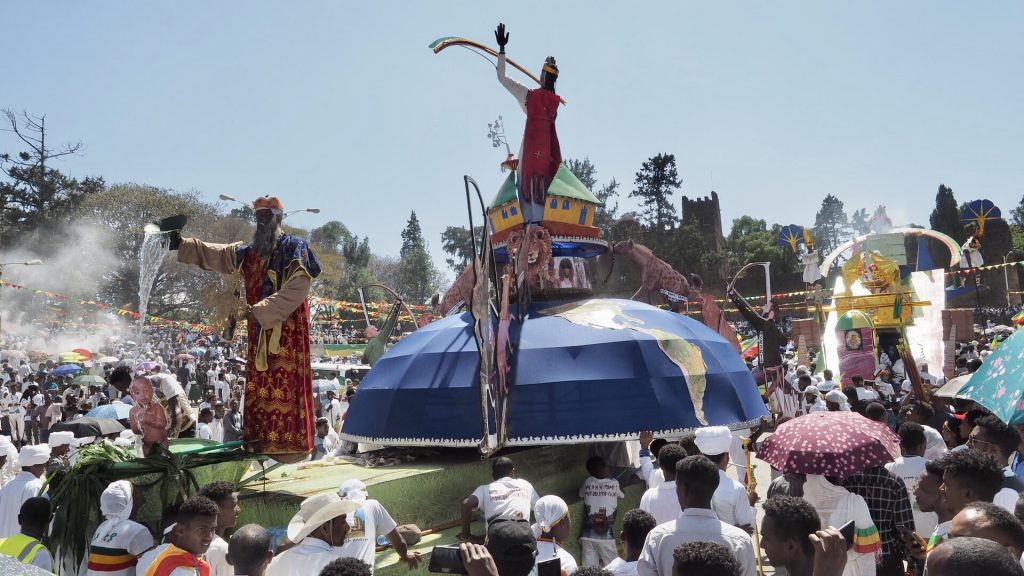
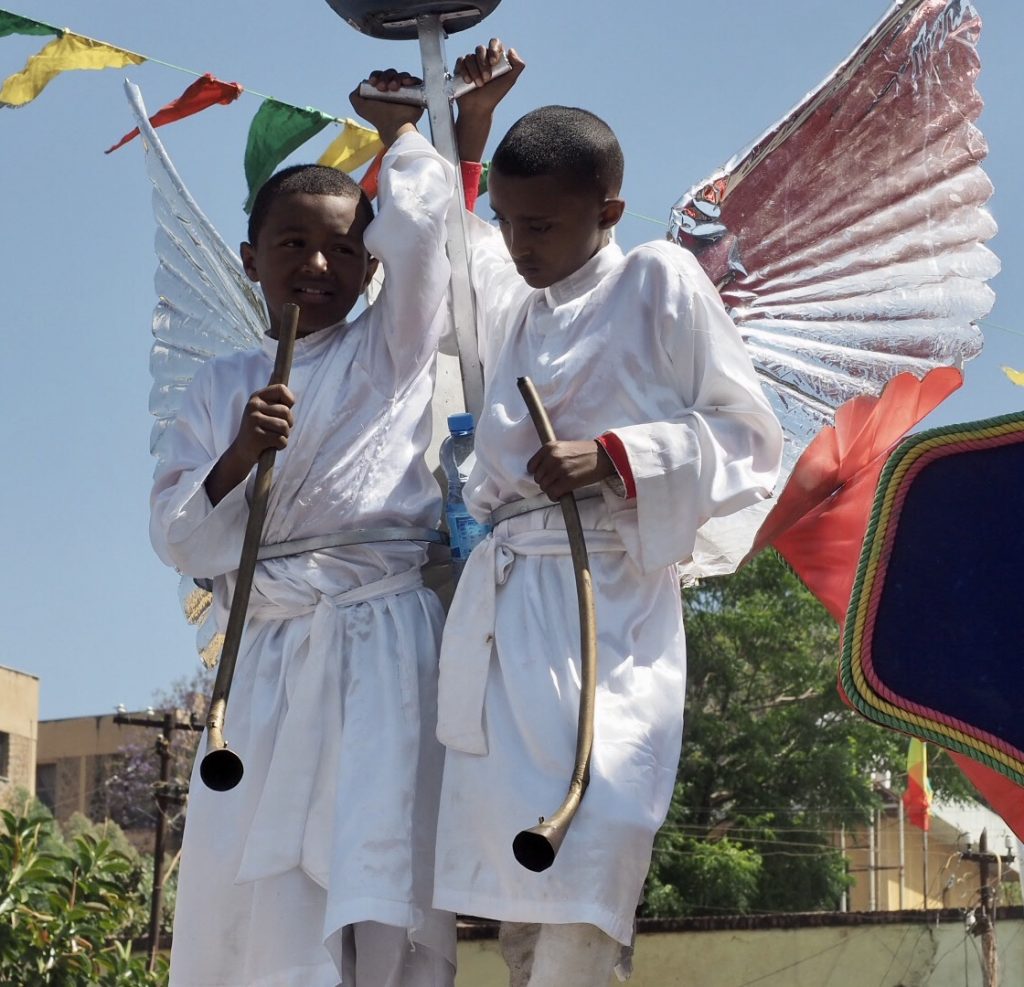
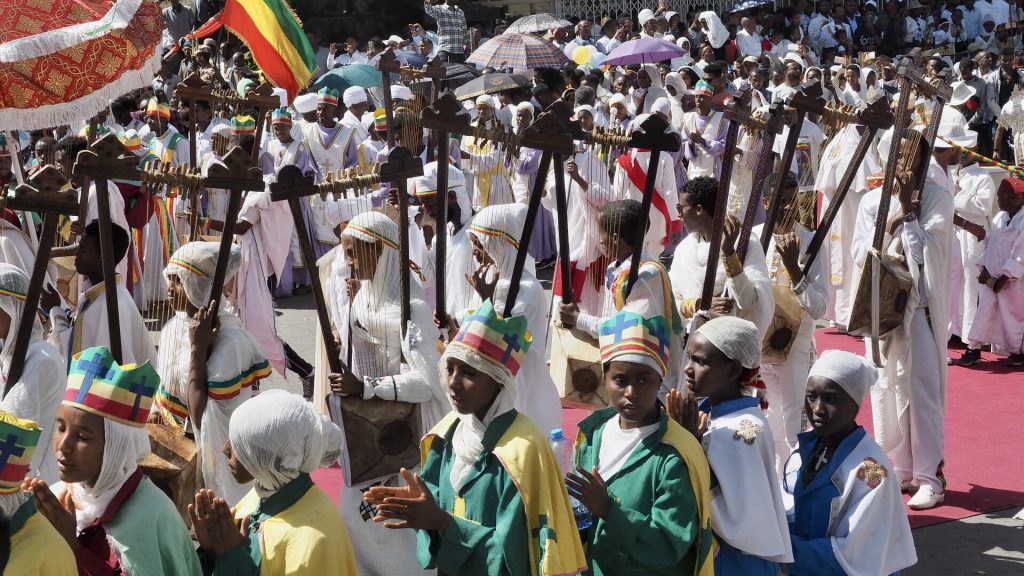
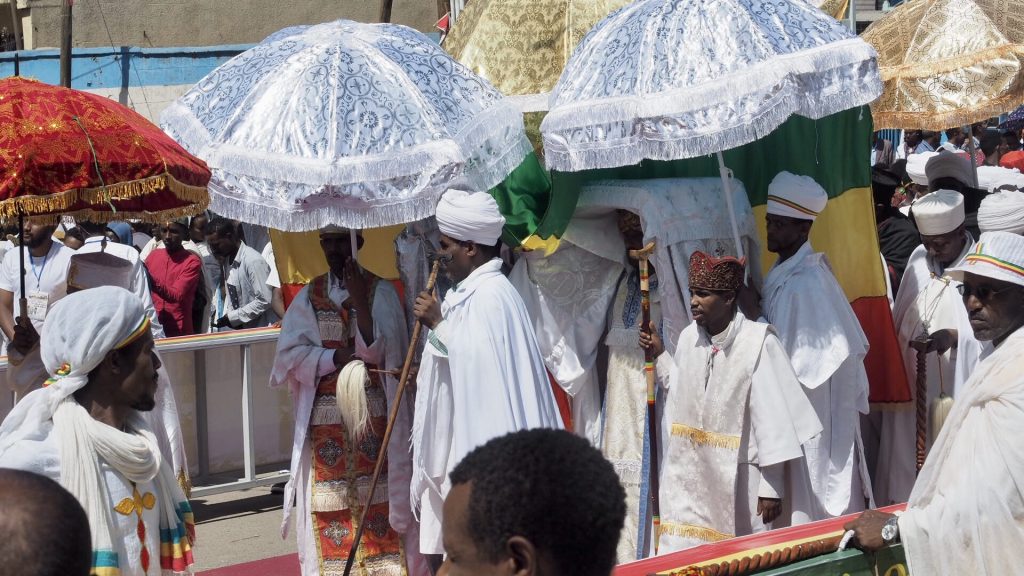
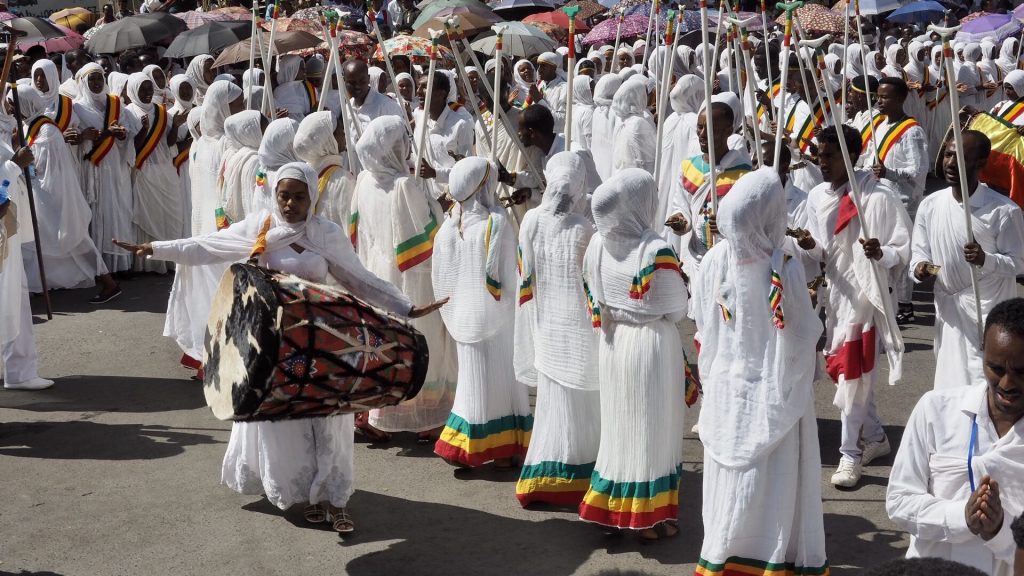
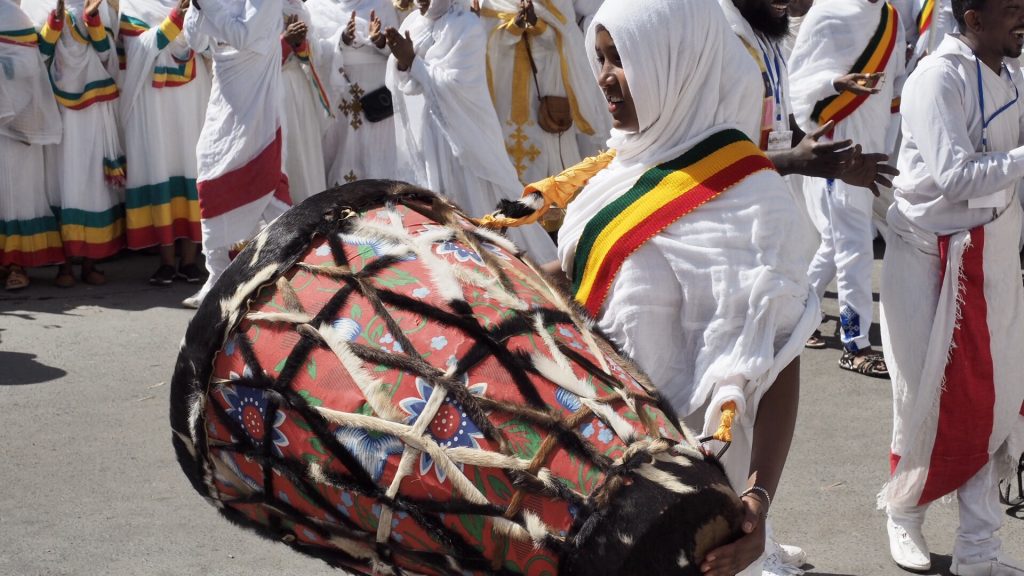
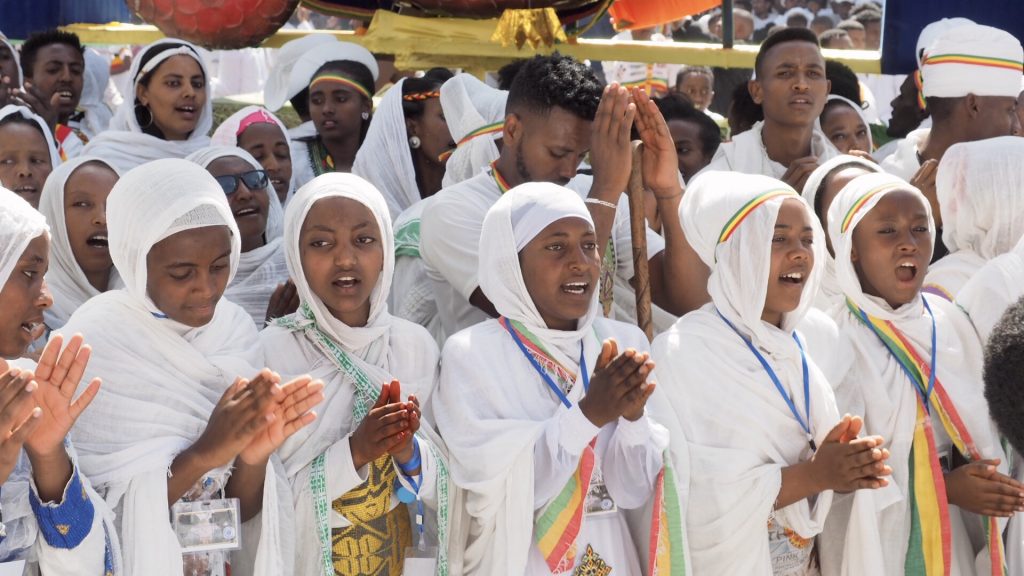
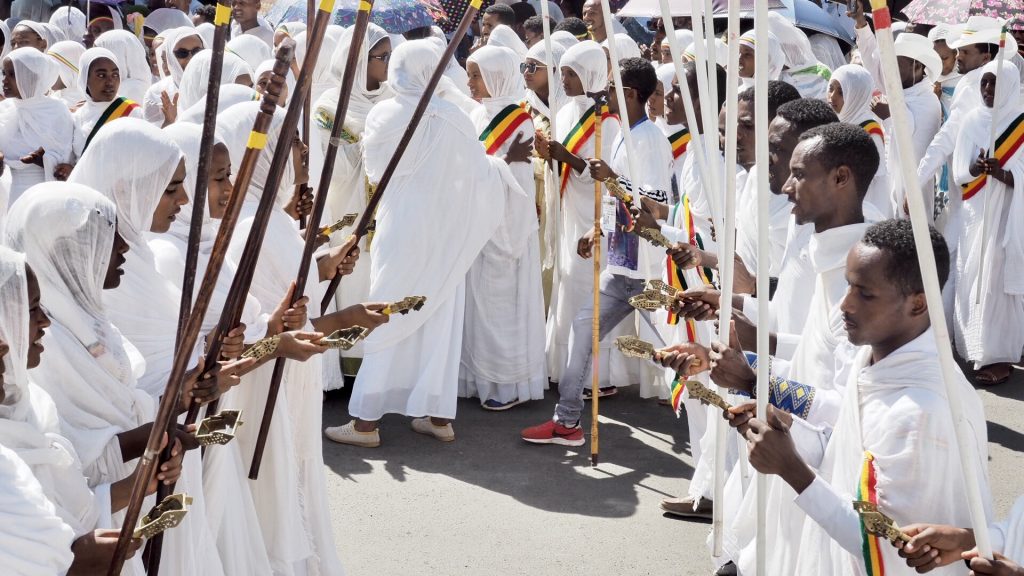
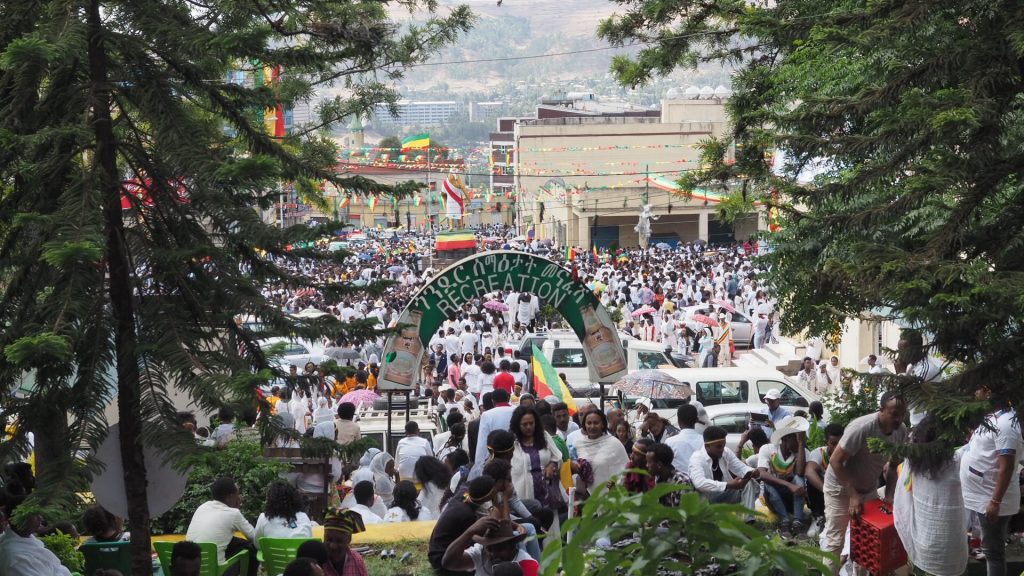
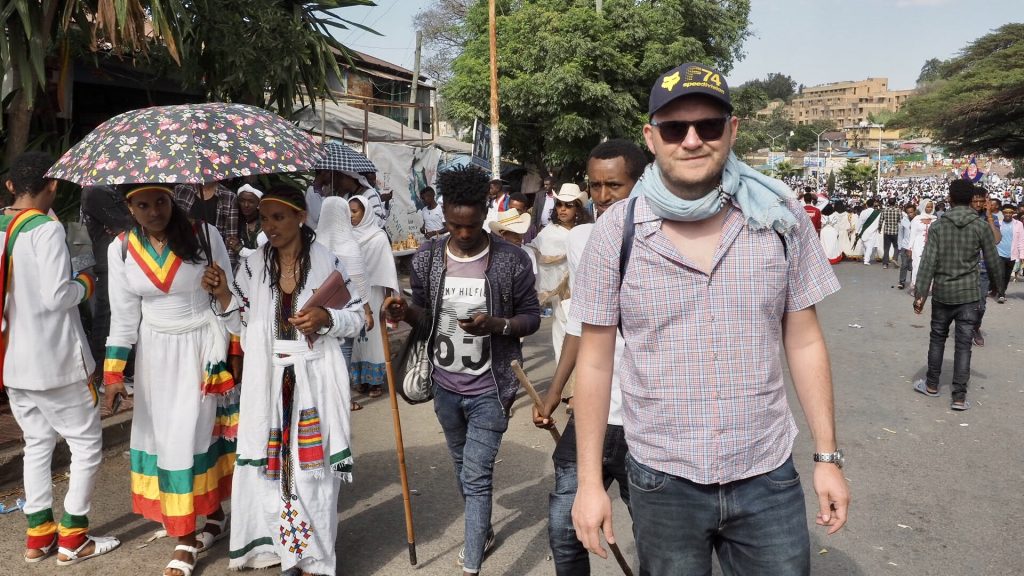
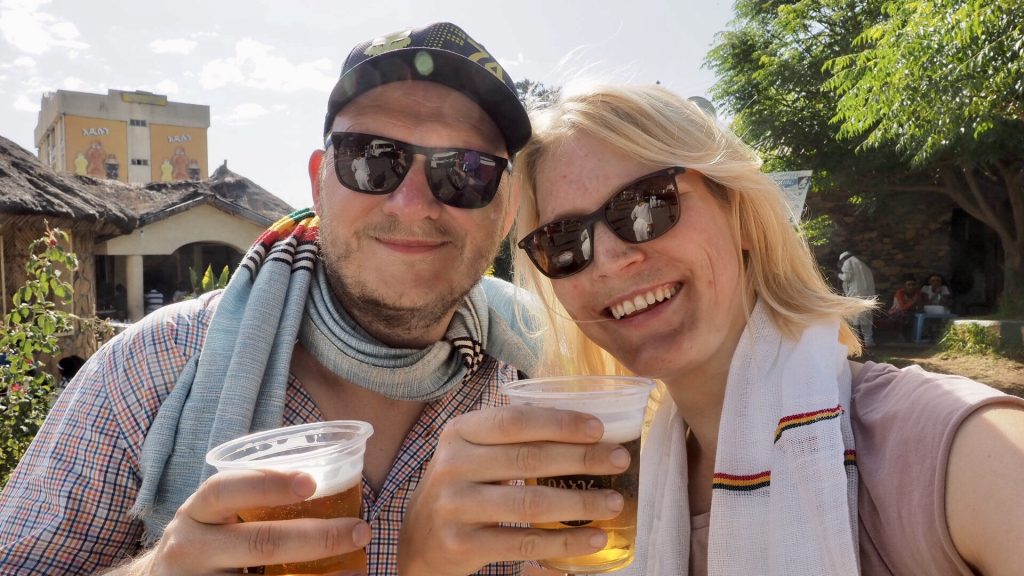
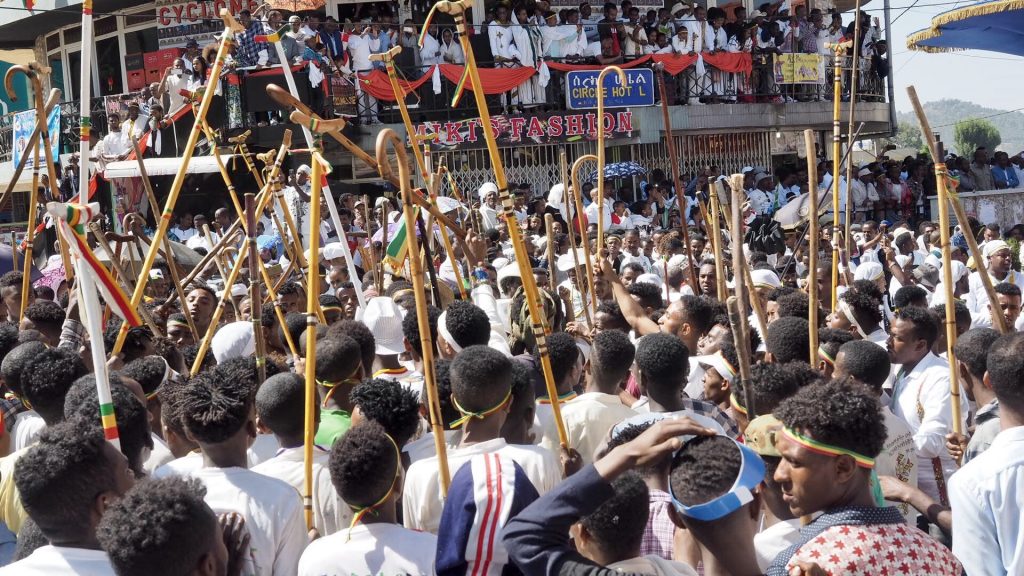
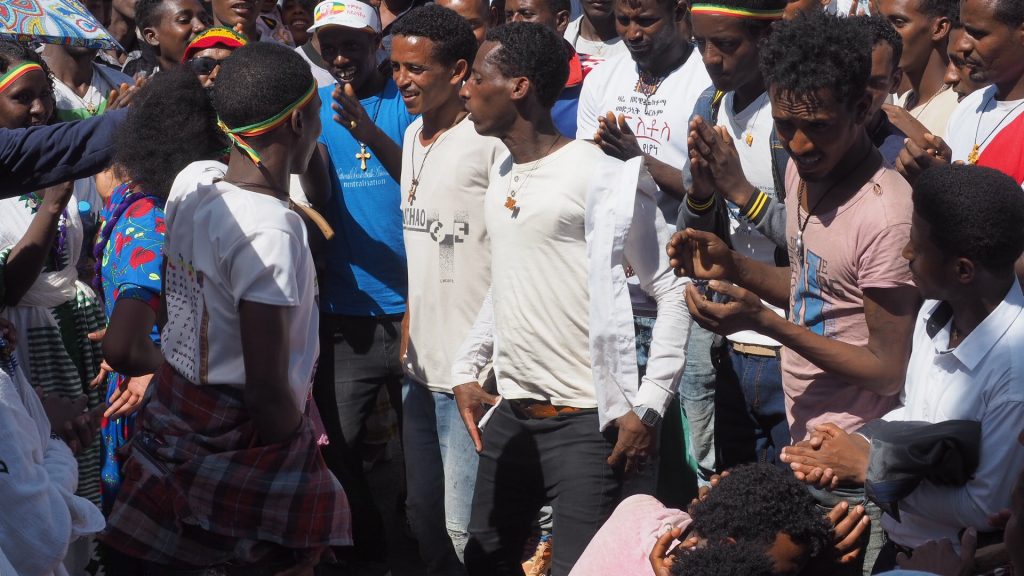
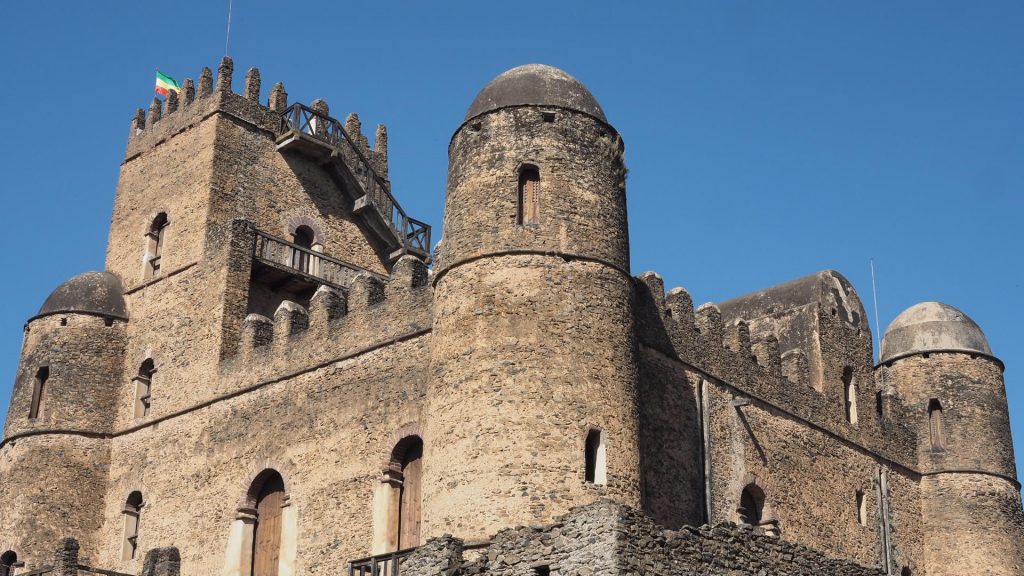
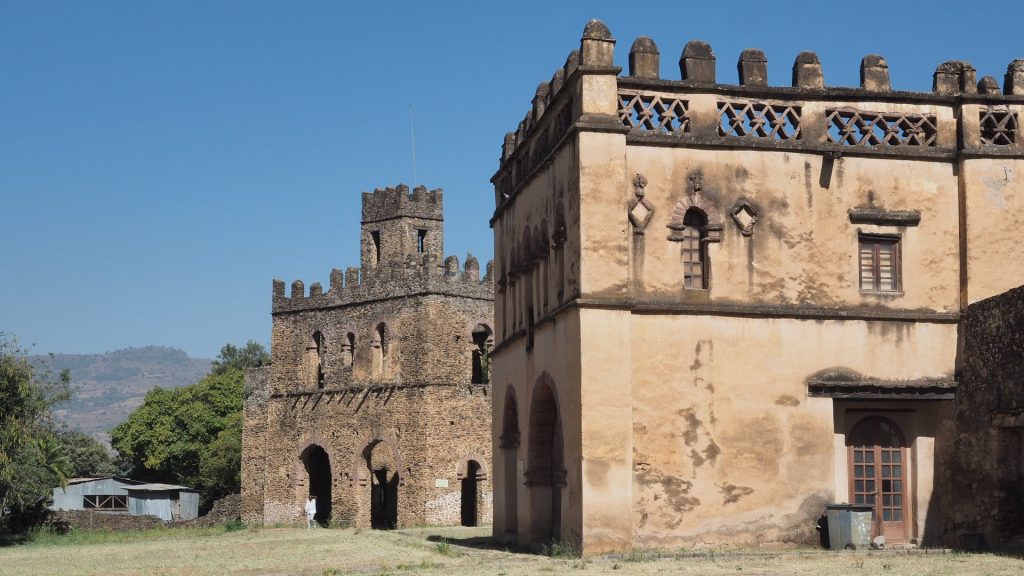
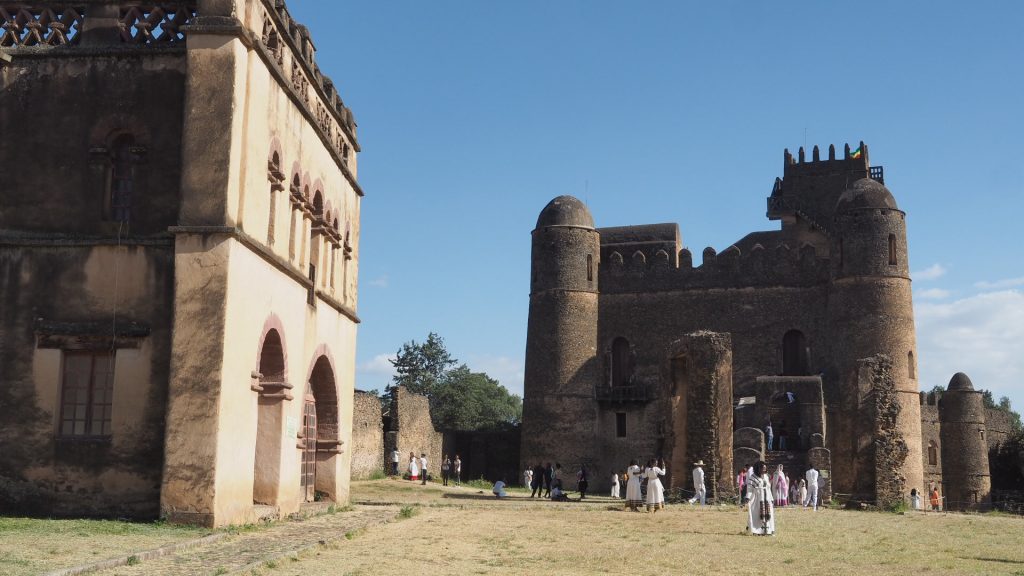
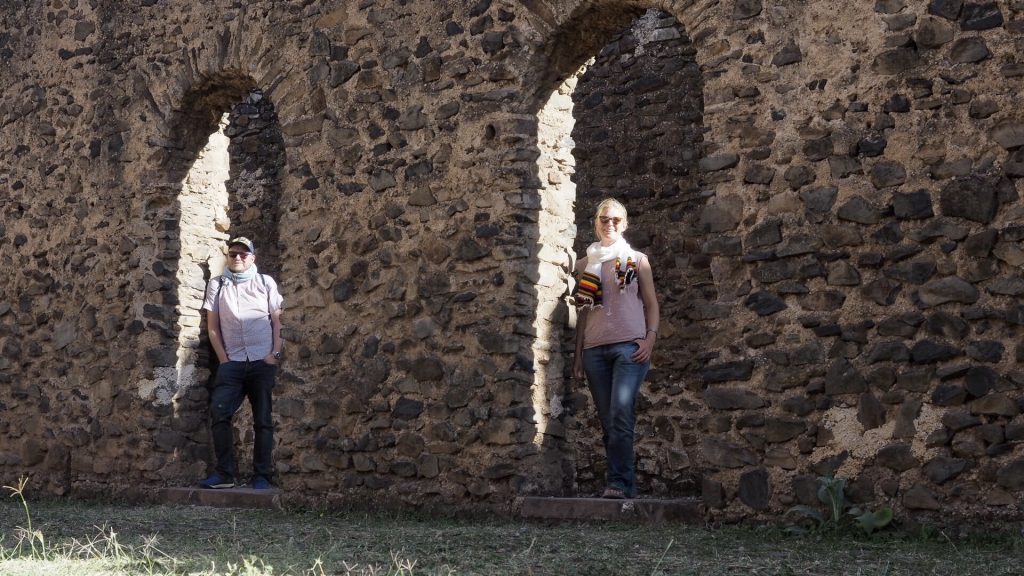
The festivities are not only held in Gondar but all over Ethiopia but the celebrations in Gondar attract over one million visitors, least of them foreigners. This also leads to a steep increase of hotel prices in the city. Expecting this I had booked a guesthouse for these days in October via booking. Two week before the event I get a message from the guest house stating they cannot accommodate us. When I call them they tell me that they want more money because of the holiday. Well, I know, that’s why I had booked in October! But seeing not too many options we agreed for the time being. We spent the night before our Siemen Mountain Trip there but did not like it too much. For once, even the regular price of 20 US$ per night is high for a room with a common bathroom even with breakfast. It was also noisy and the owner was rather unorganized, almost dishonest. He wanted more money than we had agreed on after his initial cancellation and we had to show him the text message that he sent us. So we decided to call a few other hotels from the Mountains and found a room at the first try. Only slightly more expensive but with our own bath. When we came back to the first guest house to pick up our stuff it was in so much chaos they barely noticed we were there. There were so many people and tents in the yard. No one knew where the owner was. Luckily we found our (locked) bags and took off for our new hotel where we were quite happy.
The whole experience over Timkat was very intense. Even though a tragedy occurred it was an experience we wouldn’t have missed. The Ethiopians pulled us with them, life goes on. But let us not forget what happened.
